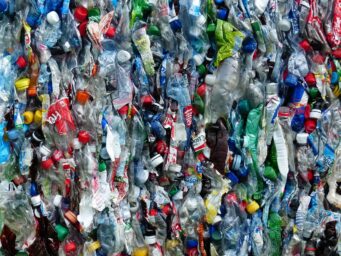The European Commission has launched a public consultation and call for evidence on its forthcoming Circular Economy Act, signalling the launch of a key policy phase for embedding circularity at the core of the EU’s industrial strategy.
The feedback window opened on 1 August and will run until 6 November 2025.
The legislation, expected to be adopted in 2026, should reduce reliance on imported raw materials through the establishment of a single market for secondary raw materials, the enhancement of high‑quality recycled material supply, and the stimulation of demand for circular products. It also seeks to prevent regulatory fragmentation by aligning with existing measures, including the Critical Raw Materials Act, Packaging and Packaging Waste Regulation, and eco‑design for Sustainable Products rules, the EC reported.
Europe already has the knowledge, technology and industrial capacity to lead the global transition to a more circular society. – Lars Lindén, CEO of Ragn‑Sells Group
The Draghi and Letta effect
The Commission’s push is underpinned by strategic recommendations from Mario Draghi and Enrico Letta, both of whom urged greater coherence between environmental and industrial policy, reduced regulatory complexity, and stronger intra‑EU recycling supply chains. These priorities are now embedded in the framework of the Circular Economy Act. Support for the proposal is also rooted in the Antwerp Declaration from industry and the Budapest Declaration endorsed by EU leaders, the EC pointed out. These documents helped shape the Commission’s Clean Industrial Deal and Competitiveness Compass, both of which view circularity as central to future economic transformation.
We need to seize the transition to a circular economy as an opportunity for Europe to lead in innovation and competitiveness, and high environmental standards. – Jessika Roswall, Commissioner for Environment, Water Resilience and a Competitive Circular Economy
Feedback welcome – and crucial
Recent industry voices range from cautious to fairly optimistic. Lars Lindén, CEO of Ragn‑Sells Group, one of Europe’s leading waste and circularity firms, told attendees (including decision‑makers, business leaders and civil society representatives at the Clean Industrial Dialogue on Circularity) that the legislation “could pave the way for a more circular Europe, but only if waste is seen as a resource and not merely a problem.” He emphasised the need for tools to improve material quality and detoxification, echoing concerns about downstream implementation. In a press release from mid‑July 2025, he stated:
“Europe already has the knowledge, technology and industrial capacity to lead the global transition to a more circular society – now we need the tools to accelerate this shift. I am confident that the Circular Economy Act has the potential to be a game changer…”
You might be interested
While the Commission states the consultation will identify barriers and opportunities for scaling circular economy deployment, some stakeholders have already voiced reservations. Business groups warn of potential regulatory overlaps unless product standards and waste definitions are clarified. Meanwhile, environmental advocates urge binding targets for recycled content and stronger procurement incentives to ensure uptake. Commissioner Jessika Roswall has emphasised the importance of stakeholder input via the ‘Have Your Say’ platform as essential to shaping a framework that balances industrial competitiveness with sustainability.
“We need to seize the transition to a circular economy as an opportunity for Europe to lead in innovation and competitiveness, and high environmental standards. As we shape the Circular Economy Act, we want input from businesses, citizens and other stakeholders to embed circularity across our society and economy,” the commissioner stated.
If executed effectively, the Circular Economy Act could prove one of the most significant legislative impulses in the EU’s transition to a resource‑efficient industrial model.











